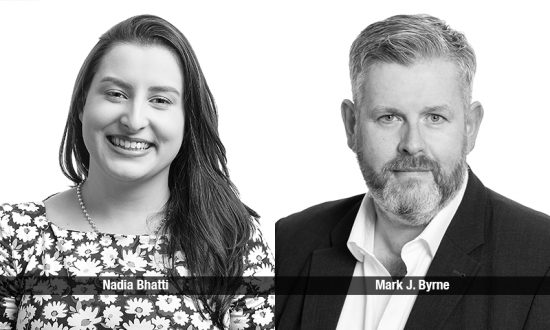Dean of Independent College, Mark J. Byrne, (Msc IS) has a wealth of professional and academic experience and qualifications based on a long-term successful record of achievement in Higher Education, academic, professional leadership and management. He has been instrumental in the development, accreditation and growth of there MA in Dispute Resolution and is deeply committed to developing excellence, innovation, and student engagement across all Independent College Level Undergraduate Level 8 & Post Graduate Level 9 QQI internationally accredited courses.
Nadia has an LLB degree from Trinity College Dublin, possesses a wealth of experience in the delivery of academic law programmes combined with extensive business professional practice experience in the law.
Disputes arising across the globe are driven by a number of factors including politics, religion, ethnicity, commercial and cultural differences. Besides, conflicts are damaging, expensive, and time consuming. In fact, long-term and highly interdependent relationships between organisations is prone to a variety of disputes over the respective parties’ rights and obligations. To navigate these often complicated scenarios, both government and non-government organizations need skilled professionals who are trained to resolve such issues. A wider scope of being a professional mediator is explained for better understanding of the aspirants.
Academic roadmap and career roles:
A master’s degree from an accredited conflict resolution program for this enriching subject can lead one to a rewarding and lucrative career in the private, public and government sectors. If you want to work in dispute resolution applying techniques and processes within court, across government sectors and within the private sector, look for a program that is professionally-focused and innovative. It should expose students to new perspectives and deep analyses, ensuring high-quality teaching and learning experiences.
There are many exciting opportunities for those with a background in conflict resolution at all career levels. At both national as well as regional levels, these individuals might facilitate political settlements between two or more parties using compromises, governance structures, and national systems of justice to achieve or maintain peace. After graduation, students must be self-motivated to research organizations for possible employment, develop networks into these organizations, and hone their pitches for the employment application process. To gain an edge over others, graduates must work closely with professors, career services, and career coaches to help them achieve their professional aspirations. Institutes specializing in business and legal courses like Independent College are enabling learners to identify, develop, and apply analytical creative problem solving and research skills via master courses in dispute resolution.
Ways to resolve a dispute:
Dispute conflict resolution refers to the practice of settling disputes and disagreements, often of a legal nature, in the most amicable way possible. It includes all dispute resolution methods and approaches from early resolution through to formal tribunal or court processes. Alternative Dispute Resolution (ADR) is the procedure for settling disputes without litigation, such as mediation, conciliation, arbitration and adjudication.
Litigation is formal, and usually a public process that helps resolve disputes in a courtroom setting with a judge or judge and jury. There are often strict rules, which the government imposes, that dictate the conduct of how the process will be carried out. Due to these challenges ADR is growing in popularity because it is typically cheaper and faster than entering into litigation and resorting to the courts.
Importance of mediation:
As long as communication has not irretrievably broken down between the parties at dispute, mediation should be considered as a more efficient method of achieving an outcome. It also helps organisations maintain confidentiality and preserve the reputation of the individuals or businesses involved. Examining both sides of arguments in order to reach an amicable and logical solution, are the main prerogatives of those working in dispute resolution.
Bottomline:
When conflict is resolved effectively, it leads to many benefits, such as accomplishing goals and strengthening relationships. Beside a fruitful career, earning your degree in this subject can lead to better leadership skills, greater job opportunities and beneficial relationships with coworkers.




